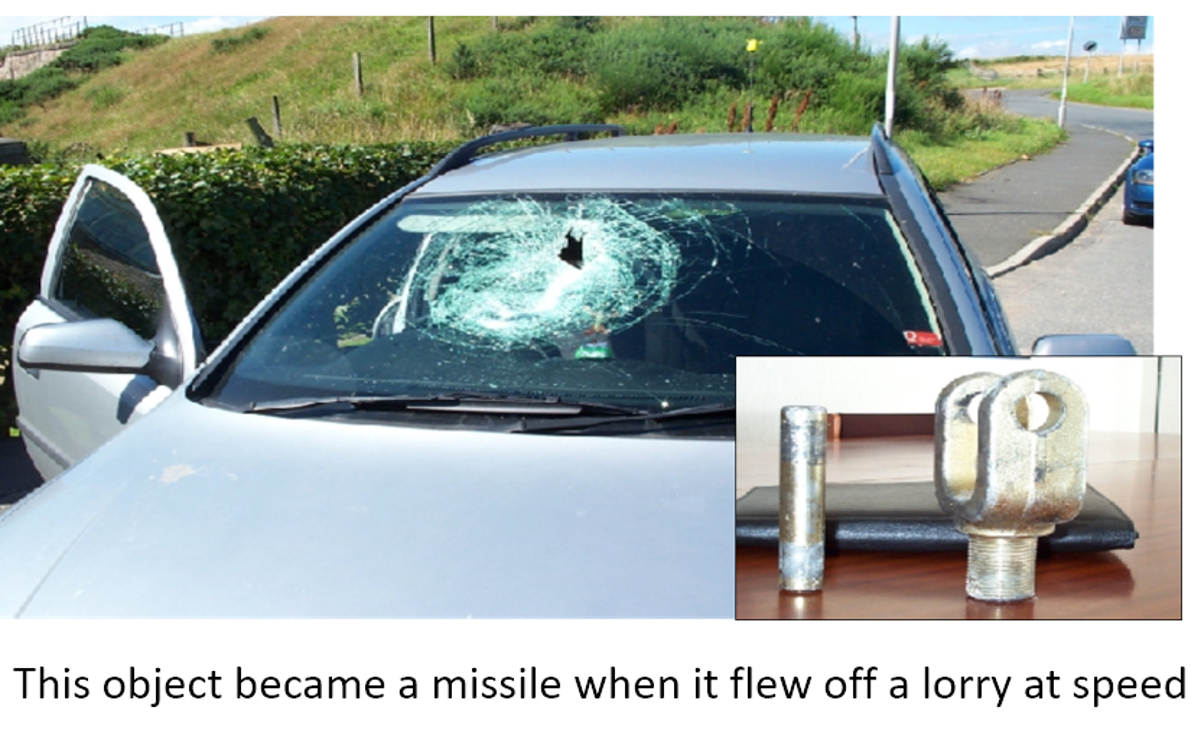More than a dropped object – The need for vigilance during cargo operations
- Safety Flash
- Published on 12 May 2017
- Generated on 27 February 2026
- IMCA SF 10/17
- 2 minute read
Jump to:
UK Step Change in Safety has published a ‘Safety Moment’ describing an incident in which a car travelling along a road near a port was struck by an object.
What happened?
It is thought that the object was left on top of a container that came back from offshore and was being transported on a lorry travelling in the opposite direction.
The object weighed 15 kg and came through the windscreen of the car, narrowly missing the driver – a mother – and her child.
This incident could easily have been very much more serious.

Step Change notes the following causes of dropped and potential dropped objects:
- Objects left unintentionally and not found before transportation.
- Unsecured items missed during pre-lift checks.
- Items detaching as a result of colliding with other cargo or vessel/lorry.
Recommendations
Step Change offers the following helpful advice:
- Pre-transportation checks must be undertaken and given high importance.
- People responsible for loading and transportation must be observant and ensure loads are secure.
- Everyone must remain in a safe area, clear of lifts until the cargo is landed.
- All dropped and potential dropped objects must be reported to the installation and vessel owner.
Please circulate widely the ‘Safety Moment’ PPT presentation developed by Step Change describing this incident, which can be found on the Step Change website.
Related safety flashes
-
IMCA SF 19/14
18 December 2014
IMCA Safety Flashes summarise key safety matters and incidents, allowing lessons to be more easily learnt for the benefit of the entire offshore industry.
The effectiveness of the IMCA Safety Flash system depends on the industry sharing information and so avoiding repeat incidents. Incidents are classified according to IOGP's Life Saving Rules.
All information is anonymised or sanitised, as appropriate, and warnings for graphic content included where possible.
IMCA makes every effort to ensure both the accuracy and reliability of the information shared, but is not be liable for any guidance and/or recommendation and/or statement herein contained.
The information contained in this document does not fulfil or replace any individual's or Member's legal, regulatory or other duties or obligations in respect of their operations. Individuals and Members remain solely responsible for the safe, lawful and proper conduct of their operations.
Share your safety incidents with IMCA online. Sign-up to receive Safety Flashes straight to your email.